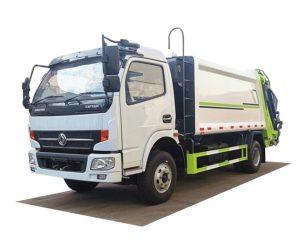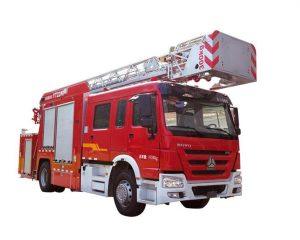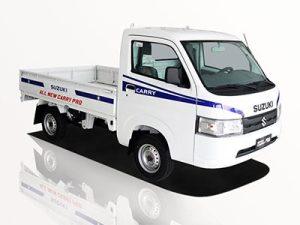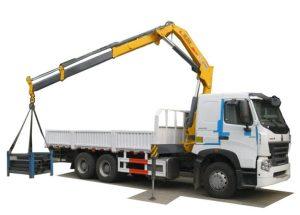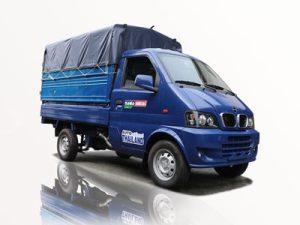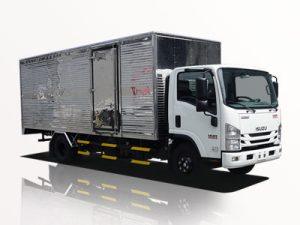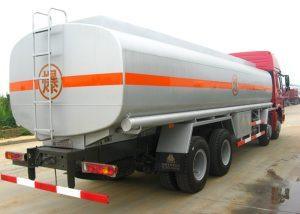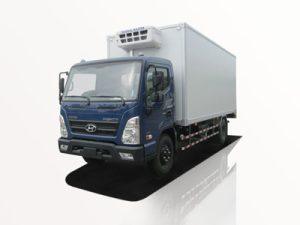Monday to Saturday - 8:00 -17:30
Understanding Landscape Dump Trucks: The Ultimate Guide
Introduction
When it comes to landscaping and construction projects, having the right equipment can make all the difference. One such piece of equipment that stands out is the landscape dump truck. These robust vehicles are designed to transport materials needed for various landscaping tasks efficiently. Whether you’re a professional landscaper or a DIY enthusiast, understanding the specifications, advantages, and optimal usage of landscape dump trucks can help you maximize productivity and minimize costs. In this article, we will explore everything you need to know about landscape dump trucks, including their types, features, maintenance tips, and more.
What is a Landscape Dump Truck?
A landscape dump truck is specifically designed for transporting bulk materials used in landscaping and construction projects. These trucks typically have a dump bed that can tilt to unload materials easily. They are particularly effective at transporting soil, gravel, mulch, and other landscaping supplies, making them a vital tool in the landscaping industry.
Key Features of Landscape Dump Trucks
- Dump Bed: The dump bed allows for quick unloading, reducing the time and labor involved in transporting materials.
- Different Sizes: Landscape dump trucks come in various sizes, suitable for small residential jobs or large commercial projects.
- All-Terrain Capability: Many landscape dump trucks are designed to traverse uneven terrain, making them ideal for construction sites.
- Weight Capacity: These trucks can typically carry loads ranging from 3 to 10 tons, depending on the model.
Types of Landscape Dump Trucks
Landscape dump trucks come in various forms, each tailored for specific tasks. Understanding the different types can help you choose the right one for your needs.
1. Standard Dump Trucks
Standard dump trucks have a large, open bed and a robust structure that allows for heavy loads. They are suitable for larger operations that require transporting bulky materials over long distances.
2. Landscape Trailers
Landscape trailers can be attached to trucks or SUVs. They are useful for smaller loads, but they require a vehicle equipped for towing. This option is more cost-effective for home landscapers.
3. Flatbed Dump Trucks
Flatbed dump trucks feature a flat, open bed that makes it easy to carry equipment and materials. While they lack sides, their versatility in loading and unloading makes them popular in landscaping.
4. Mini Dump Trucks
Mini dump trucks are compact vehicles designed for small yards and residential areas. They are perfect for projects with limited access and can navigate through narrow paths.
Choosing the Right Landscape Dump Truck
When selecting a landscape dump truck, consider the following factors to ensure it meets your requirements:
1. Load Capacity
The number one priority is the truck’s load capacity. Knowing how much material you need to transport will help you choose a truck that can handle the workload without risking damage.
2. Size and Maneuverability
Residential jobs often involve tight spaces. Selecting a smaller, more maneuverable truck can save time and reduce the risk of accidents or damage to property.
3. Fuel Efficiency
Fuel costs can add up quickly in landscaping operations. Evaluate the truck’s fuel efficiency to keep operational costs low.
4. Budget
Determine your budget before making a decision. You can find both new and used landscape dump trucks to suit various financial plans.
Advantages of Using Landscape Dump Trucks
Investing in a landscape dump truck can yield numerous benefits for landscaping professionals and hobbyists alike.
1. Increased Efficiency
These trucks allow for faster material transportation, minimizing downtime between tasks. The ability to dump materials directly at job sites can significantly speed up projects.
2. Cost-Effectiveness
By consolidating trips and reducing manual labor, landscape dump trucks lower costs in the long run. They help prevent the waste of resources, such as time and fuel.
3. Versatility
Landscape dump trucks can handle a wide range of materials including soil, gravel, plants, and construction debris, making them multi-functional.
4. Enhanced Safety
Dump trucks reduce the physical strain on workers, lowering the chances of injury. Their design helps safely offload materials, reducing manual handling risks.
Maintenance Tips for Landscape Dump Trucks
Proper maintenance is essential for the longevity and performance of landscape dump trucks. Here are some practical tips:
1. Regular Inspections
Conduct regular inspections of the truck’s brakes, tires, lights, and hydraulic systems to ensure everything is functioning optimally.
2. Clean the Dump Bed
After each use, clean the dump bed to prevent material buildup, which can lead to rust and damage over time.
3. Lubrication
Keep all moving parts, especially hinge points, well-lubricated to avoid wear and tear and ensure smooth operation.
4. Change Fluids
Regularly check and change engine oil, brake fluid, and hydraulic fluid according to the manufacturer’s recommendations.
Real-World Examples of Landscape Dump Truck Usage
To highlight the effectiveness of landscape dump trucks, here are several real-world examples across various scenarios:
Residential Landscaping Projects
Homeowners often use landscape dump trucks to haul soil, mulch, and decorative stones. These projects typically require multiple trips to transport different materials efficiently.
Commercial Construction Sites
On larger commercial projects, landscape dump trucks are indispensable for moving heavier materials like gravel, sand, and even heavy machinery. They streamline the workflow and enhance productivity.
Seasonal Maintenance
During seasonal landscaping tasks, such as spring cleaning or autumn leaf removal, a landscape dump truck allows landscapers to collect bulk waste and easily transport it for disposal.
Cost of Landscape Dump Trucks
The cost of landscape dump trucks can vary significantly based on size, model, and age. Here is a breakdown:
| Type | Average Price |
|---|---|
| Mini Dump Trucks | $20,000 – $40,000 |
| Standard Dump Trucks | $30,000 – $100,000 |
| Flatbed Dump Trucks | $25,000 – $60,000 |
| Used Trucks | $15,000 – $50,000 |
Frequently Asked Questions
1. What materials can be transported in a landscape dump truck?
Landscape dump trucks can transport a variety of materials, including soil, mulch, gravel, sand, rocks, trees, and construction debris.
2. How do I maintain my landscape dump truck?
Regular inspections, cleaning the dump bed, lubricating moving parts, and changing fluids are vital to keeping your truck in optimal condition.
3. Can I use a landscape dump truck for personal projects?
Absolutely! Landscape dump trucks are suitable for both professional landscaping jobs and personal DIY projects.
4. How do I choose the right size dump truck?
Consider the size of the projects you plan to undertake and the types of materials you’ll be transporting to determine the right truck size.
5. Are there any safety concerns I should be aware of?
Always ensure the load is secured, be mindful of your surroundings during operation, and follow safe loading and unloading practices to minimize risks.
6. What are the fuel options for landscape dump trucks?
Most landscape dump trucks run on diesel or gasoline; however, there are also electric options available that may provide better fuel efficiency and lower emissions.


